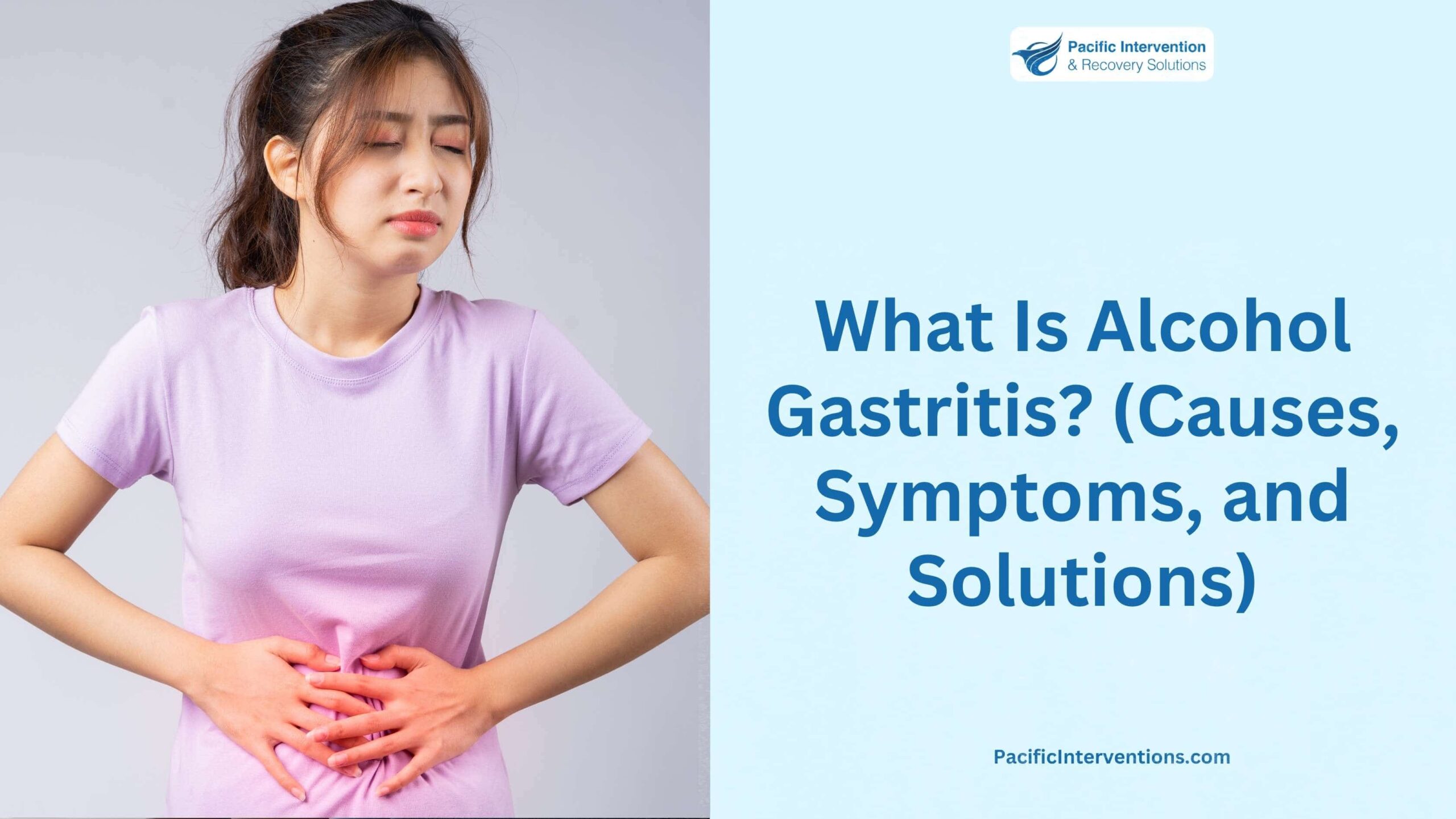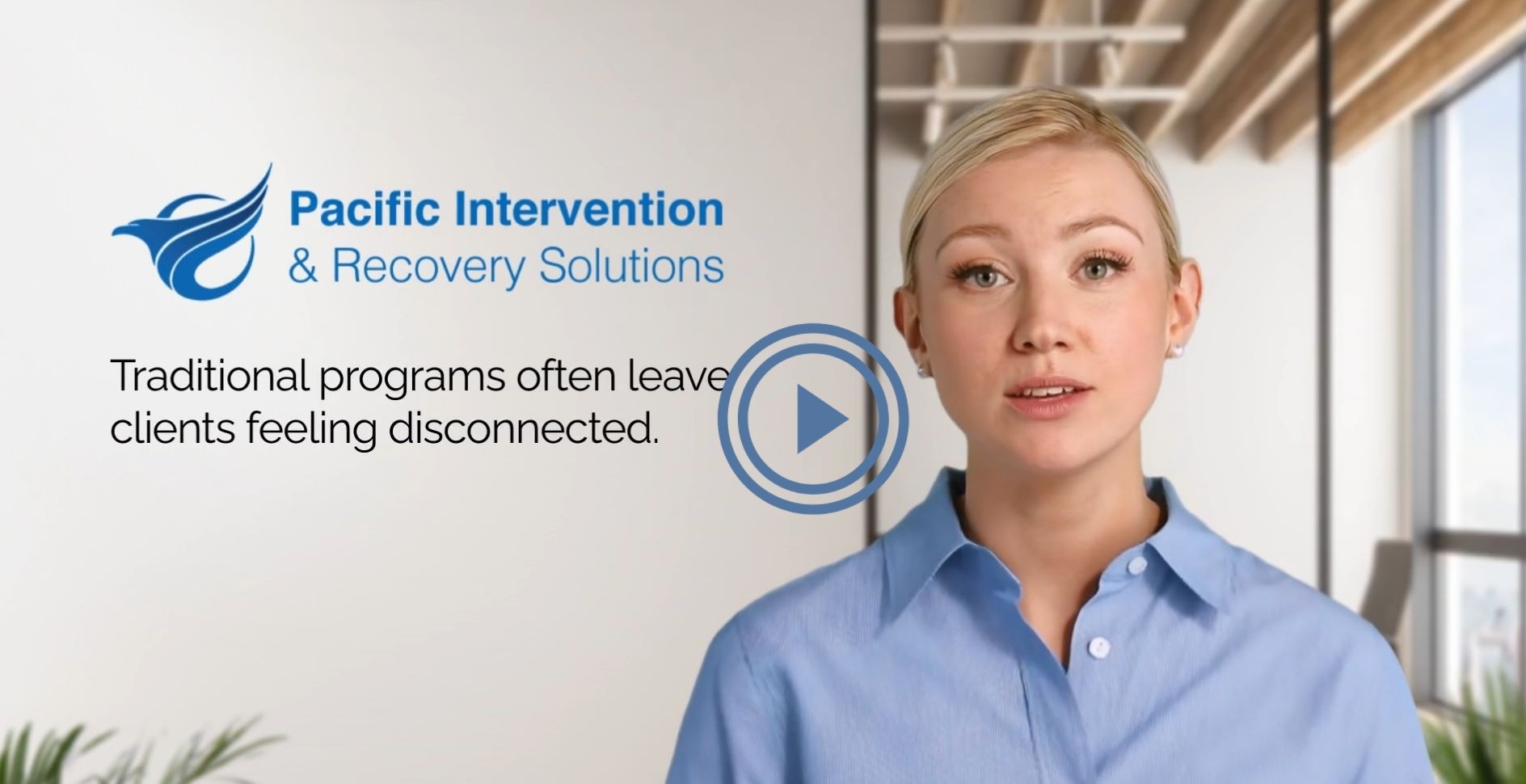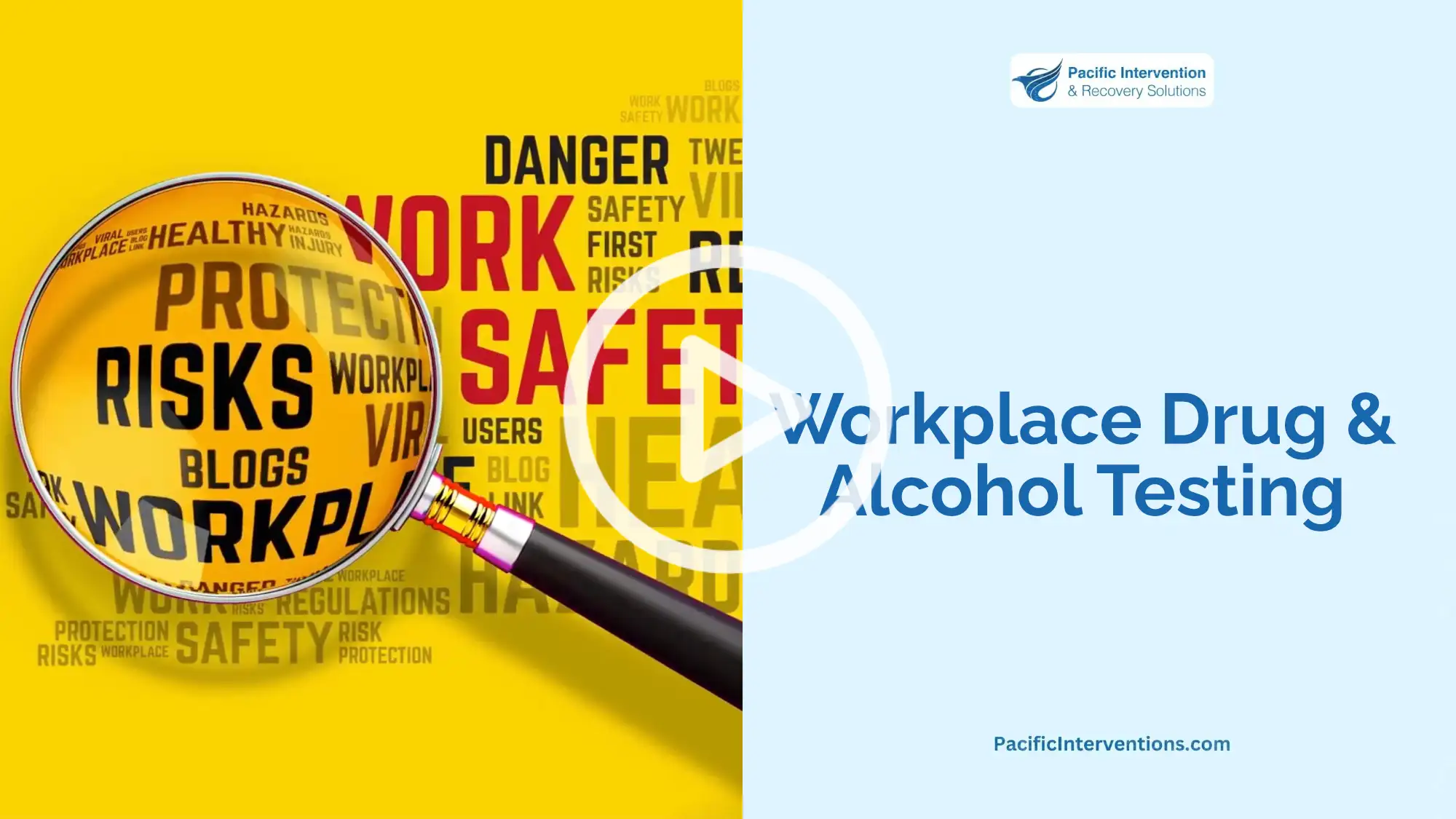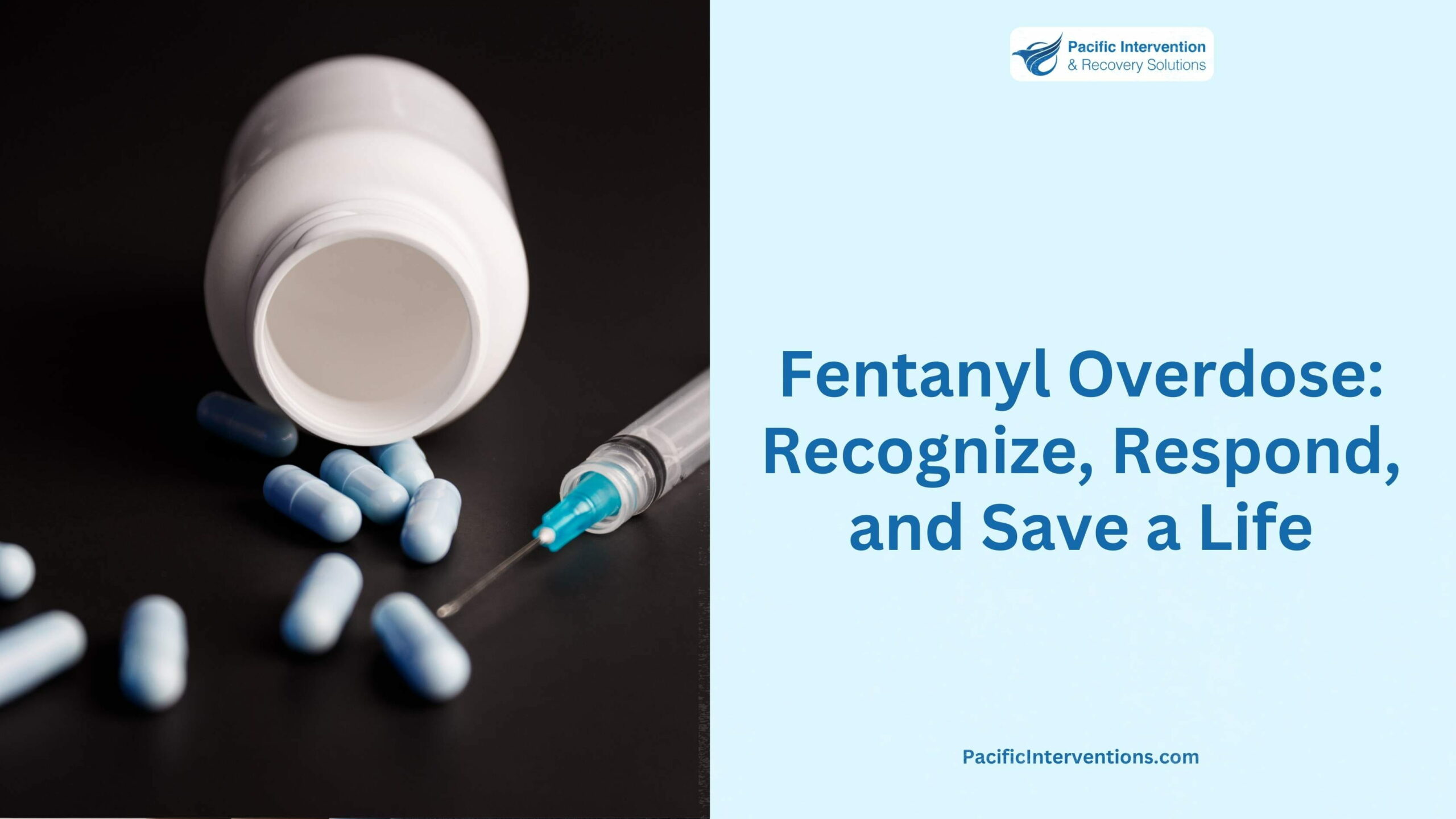Alcohol gastritis results from prolonged excessive alcohol consumption, causing stomach lining inflammation and symptoms like nausea, pain, and indigestion. Left untreated, it can lead to serious digestive issues and long-term complications.
At Pacific Interventions, we address the impact of alcohol addiction on physical and mental health. Our personalized care, outpatient programs, and recovery coaching help individuals overcome addiction and related conditions like alcohol gastritis, guiding them toward better health and a brighter future.
Understanding Alcoholic Gastritis
Alcoholic gastritis occurs when excessive alcohol inflames the gastric mucosa, the stomach’s protective lining. This weakening can cause discomfort and, if untreated, severe complications.
There are two main types of alcoholic gastritis:
- Acute Alcoholic Gastritis: This form appears suddenly, often after binge or heavy drinking. It is typically short-term and can improve with prompt treatment and cessation of alcohol consumption.
- Chronic Alcoholic Gastritis: This type develops gradually from prolonged alcohol use. Left untreated, it can result in complications like ulcers, bleeding, or an increased risk of stomach cancer.
Understanding the distinction between acute and chronic gastritis is essential for seeking appropriate care and minimizing long-term health risks.
Symptoms and Warning Signs
Alcoholic gastritis ranges from mild discomfort to serious health risks. Recognizing symptoms early is crucial for timely treatment and preventing complications. Below are the most common symptoms:
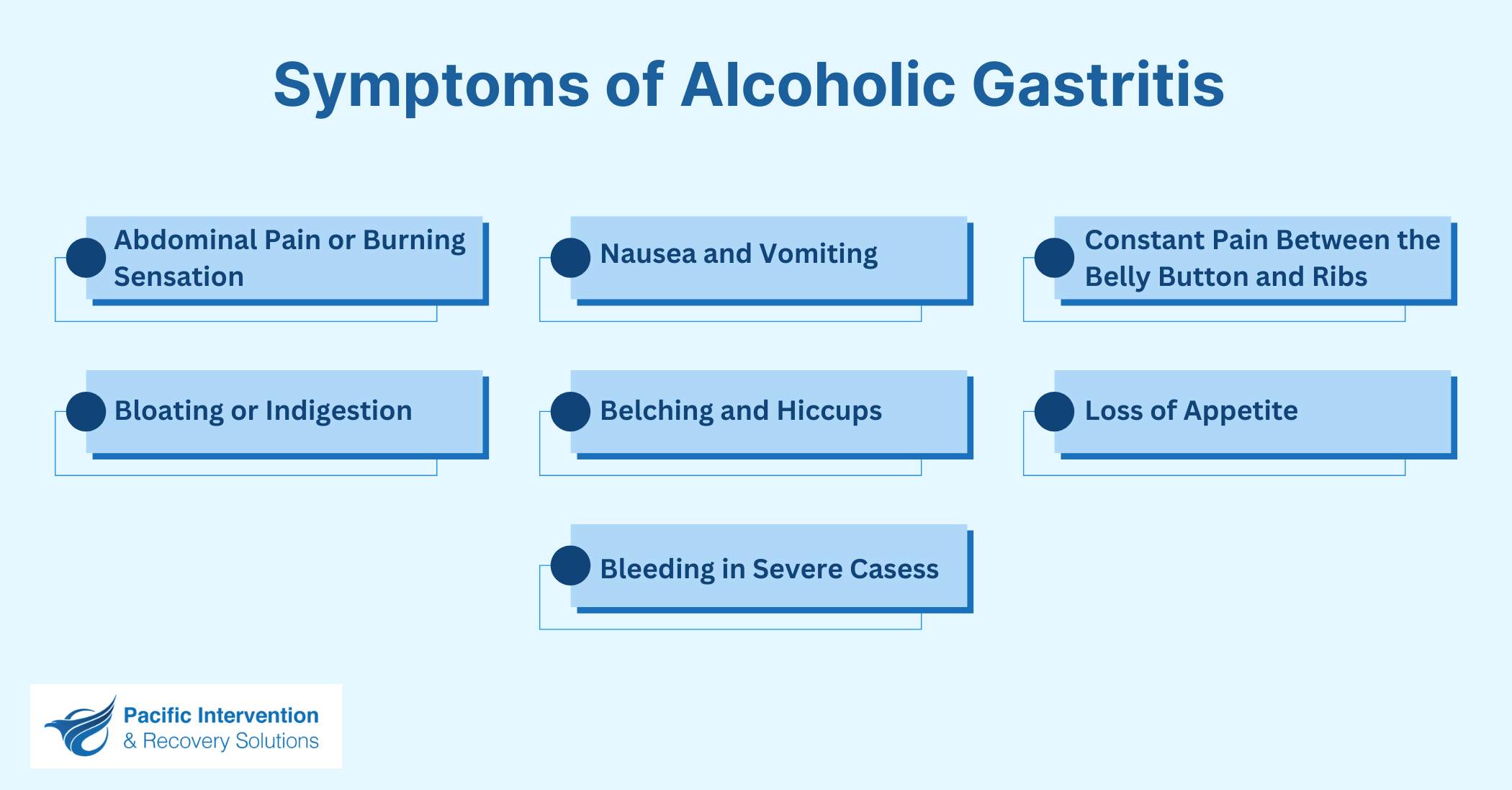
Abdominal Pain or Burning Sensation
A dull, aching pain or a burning sensation in the upper abdomen is a frequent symptom. This discomfort often worsens when the stomach is empty due to acids irritating the inflamed lining.
Temporary relief may occur after eating, as food reduces stomach acid, but acidic, spicy, or heavy foods can worsen the pain for some individuals.
Nausea and Vomiting
Persistent nausea and episodes of vomiting are hallmark signs. Vomiting can occur frequently, especially after consuming alcohol, and is a significant indicator of alcohol gastritis.
Constant Pain Between the Belly Button and Ribs
Ongoing pain in this area often stems from inflammation or damage to the stomach lining caused by alcohol. This discomfort typically intensifies during digestion or after drinking.
Bloating or Indigestion
Bloating is common and is often accompanied by a tight, pressured feeling in the stomach, particularly after meals. Inflammation can slow digestion, causing the stomach to retain gas and food longer than usual.
Belching and Hiccups
Excessive belching and persistent hiccups result from stomach irritation and increased gas production. While seemingly minor, these can signal early digestive distress and should not be ignored.
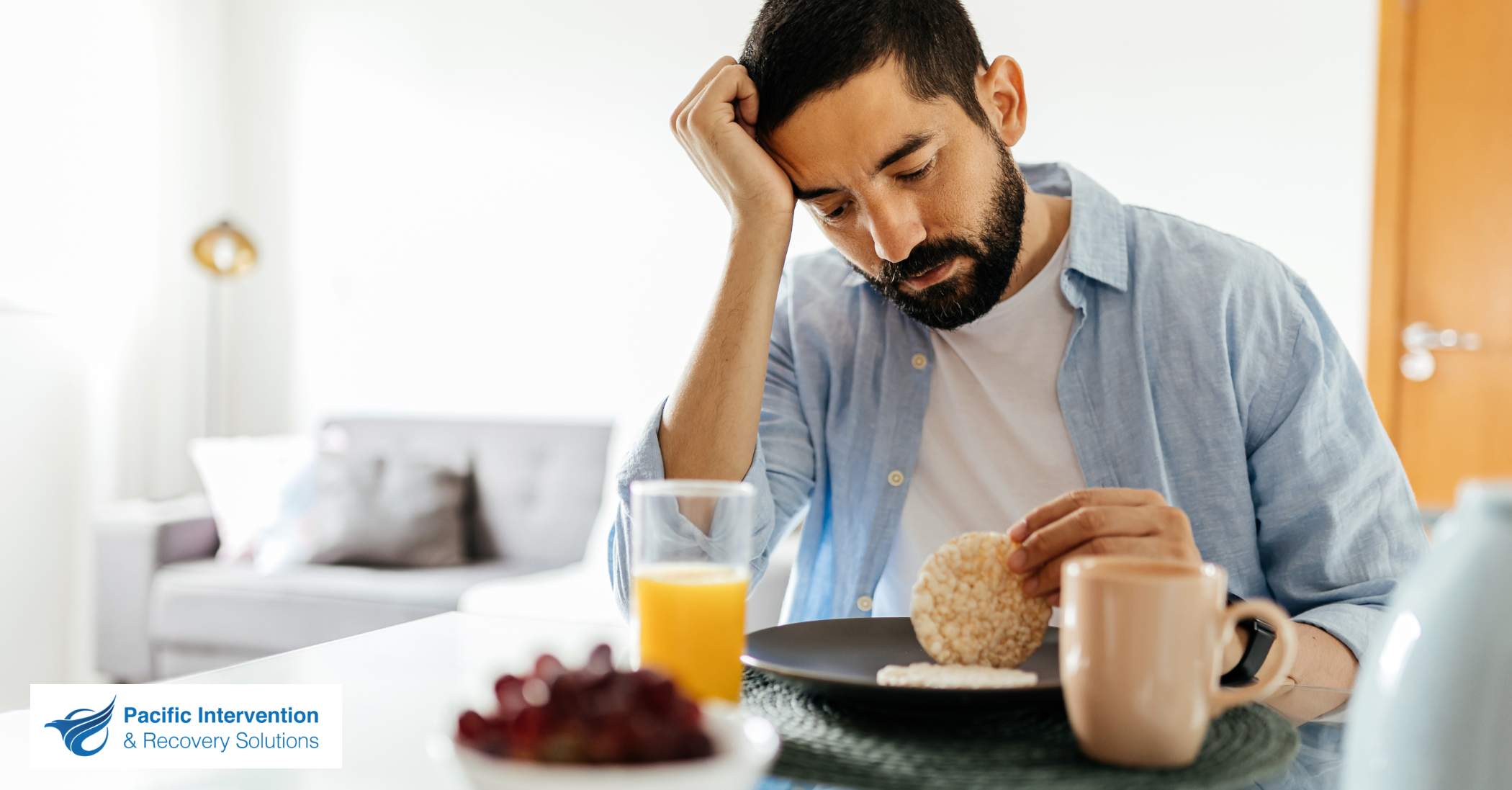
Loss of Appetite
Eating may become uncomfortable or painful, leading to reduced appetite. Over time, this can cause unintended weight loss and nutritional deficiencies.
Bleeding in Severe Cases
In advanced or untreated cases, stomach lining damage can cause bleeding. Symptoms include:
- Bright red blood in vomit or vomit resembling coffee grounds.
- Black, tarry stools indicating internal bleeding.
These are medical emergencies and require immediate attention.
What causes alcohol gastritis?
Alcohol gastritis is primarily caused by excessive alcohol consumption, which leads to sudden inflammation of the stomach lining. This inflammation can result in severe cramps, vomiting, and irritability.
While alcohol is the main culprit, other factors can also contribute to the development of gastritis:
- Non-Steroidal Anti-Inflammatory Drugs (NSAIDs): Frequent use of medications like aspirin or ibuprofen can irritate the stomach lining.
- Bacterial Infections: Certain infections, such as those caused by Helicobacter pylori, can damage the stomach tissue.
- Bile Reflux: The backward flow of bile from the small intestine can irritate the stomach.
- Autoimmune Disorders: Conditions that cause the immune system to attack the stomach lining can lead to gastritis.
- Lifestyle Factors: Stress, smoking, and excessive caffeine intake can further irritate the stomach and worsen symptoms.
Ignoring the symptoms of alcohol gastritis and continuing to drink can cause permanent damage to the stomach lining and digestive system, increasing the risk of severe complications.
Risks of Untreated Alcoholic Gastritis
Chronic alcohol consumption and untreated alcoholic gastritis can lead to severe complications affecting the digestive system and overall health. Below are some potential risks associated with long-term alcohol use:
- Acute Gastritis: Sudden inflammation of the stomach lining, causing pain and irritation.
- Chronic Gastritis: Persistent inflammation that can lead to further health issues.
- Acid Reflux: Backflow of stomach acid into the esophagus, causing discomfort and potential damage.
- Higher Risk of Stomach Cancer: Prolonged irritation and inflammation increase cancer risk.
- Liver Damage: Long-term alcohol use can result in fatty liver, hepatitis, or cirrhosis.
- Pancreatitis: Inflammation of the pancreas, which can be life-threatening if untreated.
- Cancers of the Digestive Tract: Increased risk of cancers in the mouth, throat, esophagus, liver, colon, and rectum.
- Excessive Vomiting: Frequent vomiting can lead to dehydration and damage to the esophagus.
- Upper Gastrointestinal Bleeding: Stomach lining damage can cause internal bleeding.
- Iron Deficiency Anemia: Chronic bleeding may result in iron deficiency and fatigue.
- Stomach Ulcers: Open sores in the stomach lining can cause severe pain and complications.
- Polyps and Tumors: Abnormal growths in the stomach, which may become cancerous.
Early intervention and treatment are essential to prevent these serious health risks and improve overall well-being.
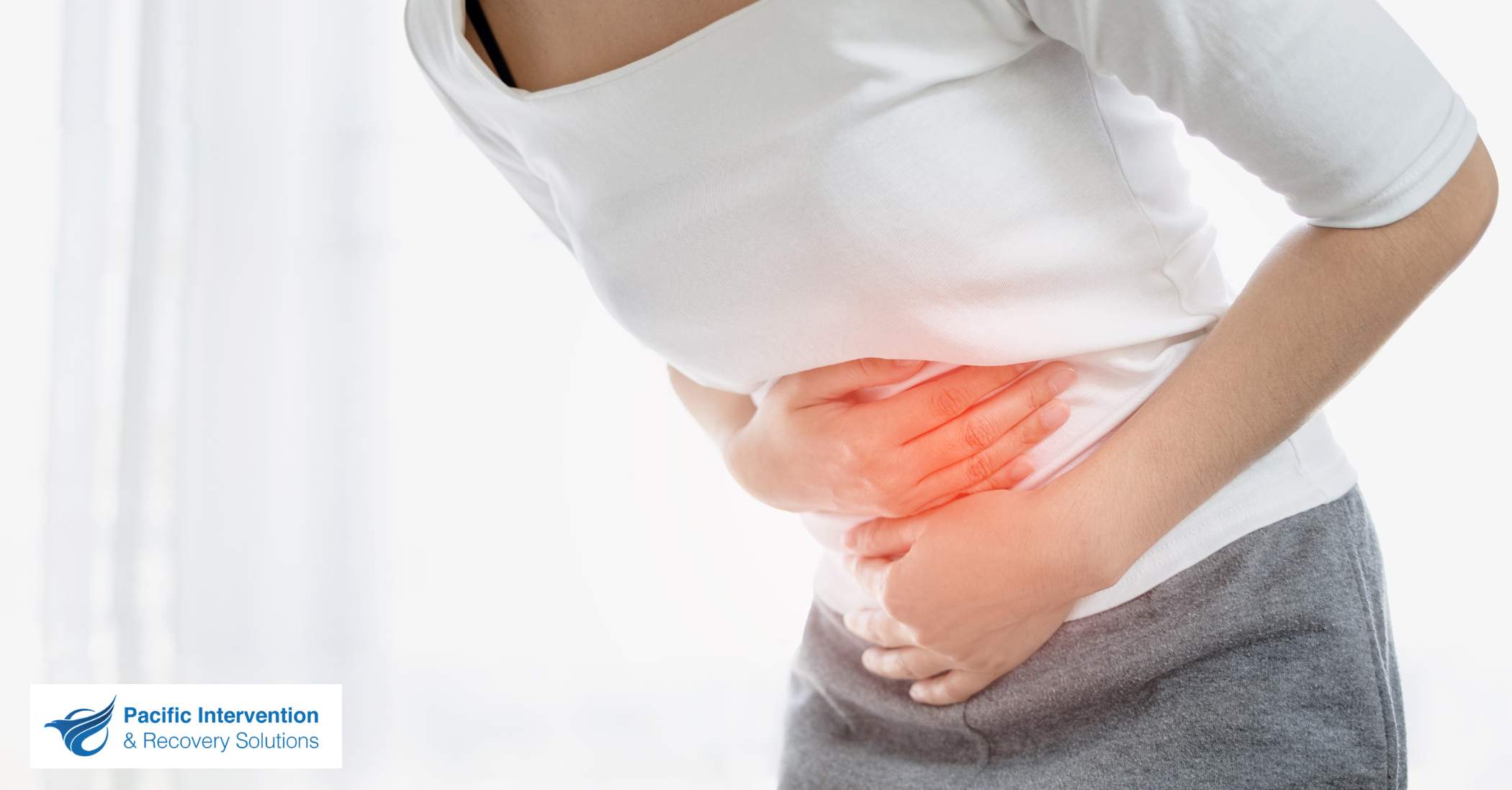
What is the treatment for alcoholic gastritis?
Alcoholic gastritis can be uncomfortable and significantly impact your quality of life. Fortunately, various treatments are available to manage symptoms and promote healing. It is essential to consult a doctor before starting any treatment.
Medications to Manage Symptoms and Promote Healing
Several medical and over-the-counter options can help relieve symptoms and aid recovery:
- Antacids: These neutralize stomach acid and provide temporary relief from pain and discomfort. They are often the first choice for mild cases.
- Acid Blockers: Over-the-counter or prescription medications that reduce stomach acid production, easing inflammation and promoting healing.
- Proton Pump Inhibitors (PPIs): Commonly prescribed for severe cases, these medications reduce acid production more effectively than acid blockers.
- Protective Agents: Drugs like sucralfate can coat the stomach lining, shielding it from further damage and irritation.
Lifestyle Changes for Alcohol Gastritis
In addition to medications, adopting healthier habits can significantly improve long-term outcomes:
- Quit Alcohol: Quitting alcohol is the most effective way to heal the stomach lining and prevent irritation. Managing alcohol withdrawal often requires professional support for a safe transition.
- Eat a Gastritis-Friendly Diet: Choose bland, easy-to-digest foods such as rice, bananas, and lean proteins. Avoid acidic, spicy, fried, or heavily seasoned foods. Consulting a nutritionist can provide tailored dietary guidance.
- Manage Stress: Stress can worsen gastritis symptoms and delay healing. Practices such as yoga, meditation, or deep breathing exercises can help reduce stress and improve digestive health.
Conclusion
Alcohol gastritis is a serious condition that can affect your health and quality of life. It happens when excessive alcohol damages the stomach lining, causing symptoms like pain, nausea, and bloating. With lifestyle changes, medications, and reduced alcohol use, this condition can be managed. Addressing alcohol use is essential for long-term recovery.
At Pacific Interventions, we understand the challenges of overcoming alcohol addiction. Our personalized care plans treat both the physical effects of gastritis and support sobriety. We offer counseling, outpatient and inpatient programs, and recovery coaching.
If you or someone you know is struggling with alcohol-related issues, now is the time to act. Visit Pacific Interventions today and take the first step toward healing. A healthier, happier life is always within reach.

